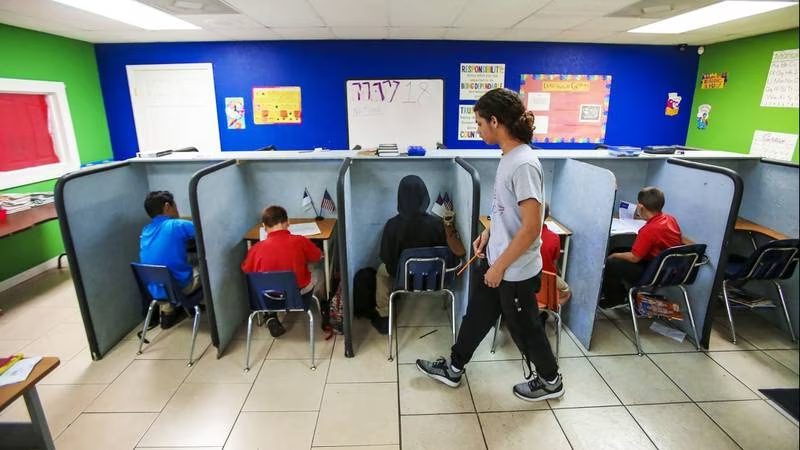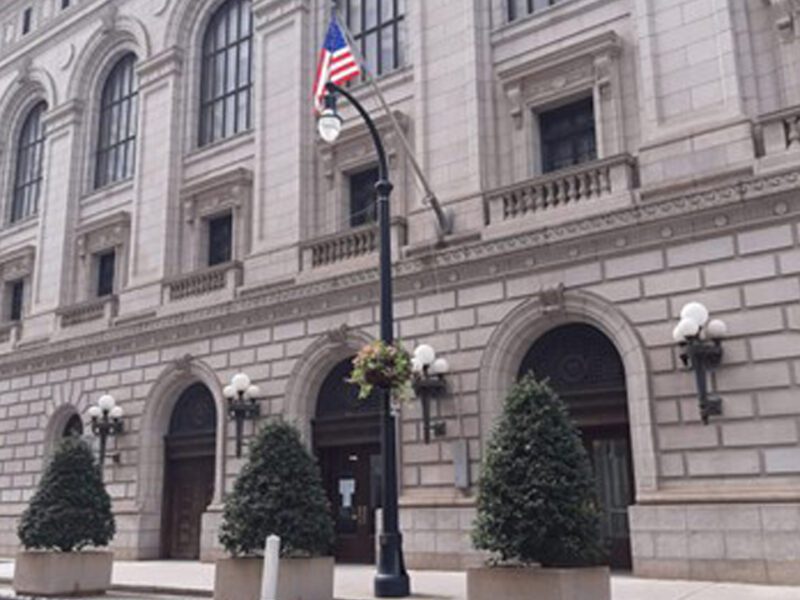
Florida’s voucher plan could cost public schools nearly $4 billion, report says
Orlando Sentinel | By Leslie Postal | January 24, 2023
The proposed expansion of Florida’s voucher programs would inflict significant “fiscal damage” on the state’s public schools, likely costing them nearly $4 billion within five years, according to a progressive state think tank.
The Florida House last week announced it wants to offer “universal choice,” allowing parents of any school-age child to get state funds that could pay for private school tuition or homeschooling services and supplies. The plan would represent the largest expansion to date of Florida’s voucher programs, which began in 1999 and already make the state a national leader in school choice efforts.
The House bill (HB 1) would wipe out income requirements in the state’s two biggest scholarship programs, now geared to children living in families of modest means, and aim by 2027 to offer state funding to Florida’s more than 152,000 homeschooled students, according to an analysis of the bill done by House staff.
The result would be a steep cut in the state education budget for public schools, according to the nonprofitFlorida Policy Institute, which opposes the bill. By the 2026-27 school year, Florida’s public schools could lose from $2.4 to $3.4 billion, depending on how many students enroll in the new program, and a year later about $3.8 billion, it found.
“I think the fiscal impact is enormous, and the drain from schools is enormous,” said Norin Dollard, senior policy analyst with the institute who crunched the institute’s preliminary estimate on the bill’s public school impact.
The state’s Family Empowerment Scholarship Program, in place since 2019 and growing yearly, this year already cost public schools about $1.3 billion, or 10% of Florida’s current K-12 funding, she added.
That loss is felt across the state’s 67 school districts, she added. Seminole County Public Schools, for example, lost $7.2 million in funding in the 2019-20 school year as students took those scholarships and $28 million in the current year, according to a report by the institute and the Education Law Center published in September.
The bill, which is to get its first committee hearing Thursday, was touted by Florida’s Republican leaders as a way to give more parents educational options for their children outside public schools.
The state’s scholarships, often called vouchers, are now earmarked for children from lower-income families and for those with disabilities. The House wants to make them eventually available to every child as long as they are not in public school.
“It’s time we empower parents to choose the school and education plan that best fits their child’s unique needs,” tweeted House Speaker Paul Renner, a Republican from Flagler County.
Kathleen Passidomo, the Republican president of the Senate, tweeted her support of the House proposal. And Florida’s GOP Gov. Ron DeSantis has been a strong supporter of the state’s voucher programs, signing into law the Family Empowerment program in 2019 and then an expansion two years later.
But critics note that private schools that take Florida’s scholarships, often called vouchers, are largely unregulated and so they fear an expansion of programs that already serve more than 252,000 students.
The private schools that take scholarships do not have to give students state tests, report their graduation rates nor meet state standards when it comes to academics, teacher credentials or facilities. Many of the schools accepting taxpayer-funded scholarships are religious schools — most of them Christian but some Jewish and Islamic — and some cite religious beliefs for their decision to ban gay students.
“Regarding the newly filed HB 1, lawmakers should be focused on providing resources to the public schools that educate nearly 90 percent of Florida’s students, not on diverting more funds to unaccountable private and religious schools,” tweeted Andrew Spar, president of the Florida Education Association, the statewide teachers union, the day the bill was filed.
The House’s analysis said the bill’s cost is “indeterminate “as it will depend on how many students opt to take part in the expanded scholarship programs and how much money the Legislature puts into the state education budget this spring.
Renner’s office did not immediately respond to an emailed request for comment on the bill’s potential costs Tuesday. Last week, he said the expansion likely would be phased in, and the House’s first priority would be to offer scholarships to the more than 9,300 children with disabilities now on a scholarship waitlist.
Supporters of school choice use the phrase “fund students not systems” to argue that money should follow students, and if fewer enroll in public schools, then those institutions can get by with fewer state dollars.
“The money doesn’t belong to government schools,” tweeted Corey DeAngelis, a senior fellow with the American Federation for Children, a school choice advocacy group. “Education funding is meant for educating children, not for protecting a particular institution.”
DeAngelis and the federation were among 30 people and groups to sign a letter to Florida lawmakers urging them to pass a “universal” education savings account law that would make state education funding available to all state students.
Arizona was the first state to pass such legislation, though its newly elected Democratic governor wants to repeal it, and now Florida and six other states with Republican leaders are pushing similar plans, according to The 74, an online education news site.
Dollard said her estimate for the bill’s impact was conservative, assuming no growth in enrollment and no change in state per-pupil funding.
If 25% of students now being homeschooled or in private schools — children not currently served by state scholarships — got one of the House’s proposed savings accounts, the cost would be about $2.4 billion by the 2026-27 school year, she estimated.
If 75% apply for the new program — the percentage seen in Arizona when it debuted, she said — the cost could hit $3.4 billion by 2026-27 and then nearly $4 billion the following year.
“This is coming directly from general revenue funds,” Dollard said. “It’s all taxpayer money.”
Though advocates say schools can get by with less money if they enroll fewer students, Dollard said school systems have many fixed costs, from buses to buildings to staff salaries, and so learning as a school year starts that fewer students will be on campus does not necessarily reduce their expenses, Dollard said.
Florida also spends less than many other states on public schools, making cuts harder to absorb, she said.
Education Week’s annual “Quality Counts” report gave Florida an F in school spending in its 2021 report. The Education Law Center did the same when it graded school spending by the states in 2020.
Dollard’s analysis focused on the Family Empowerment scholarship as it is currently funded from the state budget.
But she noted that Florida’s budget misses out on about $1.1 billion more a year because corporate donations to the Tax Credit Scholarship Program allow those companies to reduce their state income tax bills $1 for every dollar donated.





